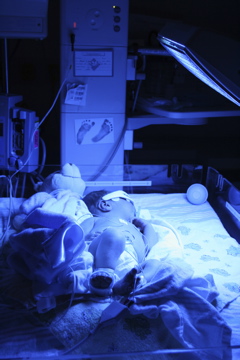A magazine where the digital world meets the real world.
On the web
- Home
- Browse by date
- Browse by topic
- Enter the maze
- Follow our blog
- Follow us on Twitter
- Resources for teachers
- Subscribe
In print
What is cs4fn?
- About us
- Contact us
- Partners
- Privacy and cookies
- Copyright and contributions
- Links to other fun sites
- Complete our questionnaire, give us feedback
Search:
Big Sister is Watching

The word 'Surveillance' can have sinister overtones. You're being watched. Everything you do. All the time...
There is at least one time in your life when you might have wanted such 24-hour coverage: if you were a premature baby in an incubator, it would be about life or death. Babies are wired up to lots of probes that sound an alarm if anything strange is detected. The trouble is the alarms go off all the time - even because a baby wriggles. For example, if a probe says the heart stopped instantly, the baby hasn't died. It just means a probe has become detached - babies' hearts just do not stop suddenly like that. Over 90% are false alarms making a baby unit a very noisy place, but more importantly it's possible real alarms could be missed.
Enter some Computer Science from
the University of Edinburgh. Professor
Chris Williams and John Quinn of the
Computer Scientists have devised clever ways for computers to look for patterns in data, and these methods can then be used to solve lots of different problems, including the baby monitor. Combining Computer Science methods with expert knowledge from Neil has resulted in a system that has far fewer false alarms - but doesn't miss the real problems.
Night, Night, Sleep tight!
Baby units could be much more peaceful in the future, thanks to the computer, always watching.


